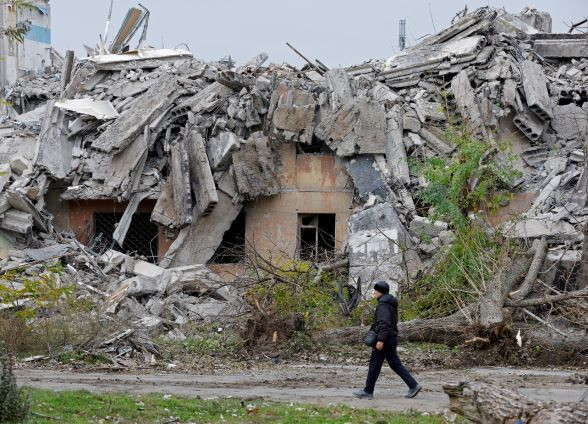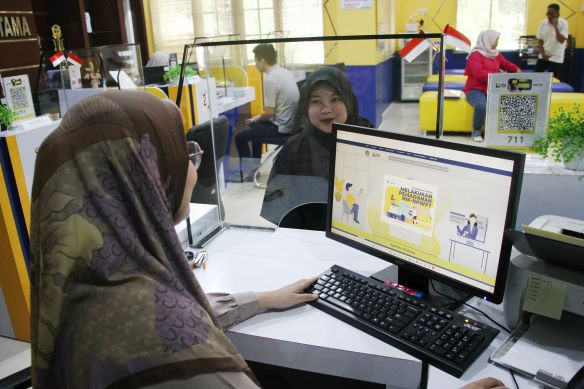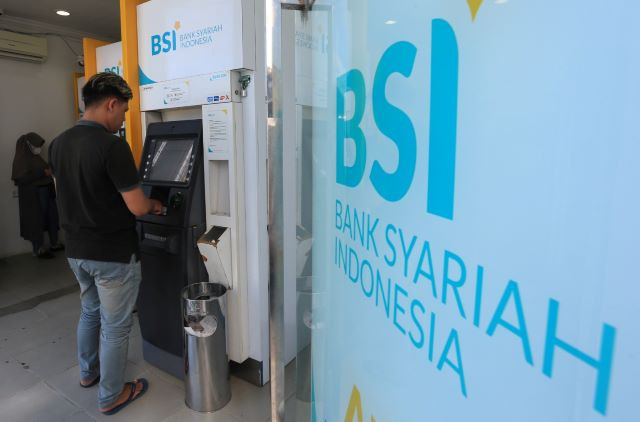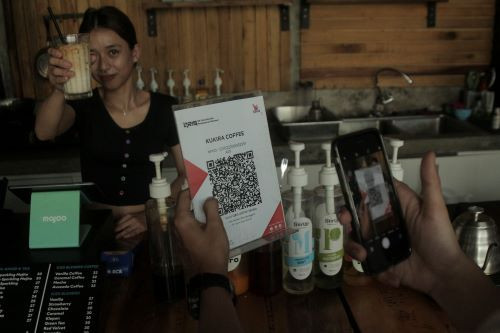The conflict in Ukraine: cushioning the global impact
The agreement brokered in July by the UN and Turkey to facilitate safe passage of grain and fertilizer through the Black Sea was critical and must continue without hindrance.
Change Size
 The price of war: A man walks past the ruins of a building destroyed in the course of the Russia-Ukraine war in Mariupol, Russian-controlled Ukraine, on Nov. 9, 2022. The war has lasted over eight months now, with no end in sight.
(Reuters/Alexander Ermochenko)
The price of war: A man walks past the ruins of a building destroyed in the course of the Russia-Ukraine war in Mariupol, Russian-controlled Ukraine, on Nov. 9, 2022. The war has lasted over eight months now, with no end in sight.
(Reuters/Alexander Ermochenko)

It is now nearly nine months since Russia invaded Ukraine. A war that should never have happened, and which Moscow hoped would be over in a matter of days, threatens to drag on endlessly.
Estimates of military and civilian deaths vary wildly but are in the tens of thousands on each side. Over 13 million Ukrainians have been displaced, about half of them across Europe and the other half internally. There has been inestimable damage to infrastructure and property.
The approaching winter threatens to multiply misery many times over. As if the human suffering already experienced is not enough, the nightmarish specter of the use of nuclear weapons lurks in the background.
The political and security fallout of this senseless conflict is immense. The United Nations has been reduced to irrelevance with respect to its peace and security role. So has the Organization for Security and Cooperation in Europe. NATO, on the other hand, has had a fresh lease of life, and is likely to expand with the inclusion of Finland and Sweden, and possibly others.
The war has also served to bring Europe together as never before, although that unity is fraying at the edges. Germany was forced to reverse its policy on providing external military assistance. The tying down of Russia in Ukraine has occurred alongside rumbles of various sorts in Russia’s near neighborhood in the Caucasus and Central Asia.
A large part of the Global South has been reluctant to condemn Russia or take sides. Many countries in Africa, Asia, and Latin America view this as a European conflict with complexities which do not justify it being treated as a case of unprovoked aggression. Yet they are all feeling the consequences in a serious and debilitating way.
The serious global food crisis of 2007-08 was caused by droughts in grain-producing nations and rising oil prices. This time, the crisis is much deeper. There was a severe drop in grain supplies from Russia and Ukraine earlier this year to add to the supply chain disruption caused by the COVID-19 pandemic.
There is also an energy crisis as well as soaring fertilizer prices. Trade restrictions have been imposed by other food-exporting countries. There have also been crop failures due to adverse climatic events, now more frequent and severe as the climate crisis bites.
It will take time and effort to build resilience to recurrent food security crises, deal effectively with global warming, and raise farm productivity - particularly with small-scale farmers.
Urgent action is needed. The agreement brokered in July by the UN and Turkey to facilitate safe passage of grain and fertilizer through the Black Sea was critical and must continue without hindrance. The WTO must watch closely any tendency towards trade restriction measures. Adequate financing should be provided for the UN World Food Program (UNWFP). And port facilities must be maintained to keep the supply chain operating for food transportation.
Two major summits are to take place. The Group of 20 Summit in Bali, Indonesia will be an opportunity for the world’s most powerful economies to put their heads together. Thereafter the Asia Pacific Economic Cooperation (APEC) Summit in Thailand will bring together the United States, Russia, China and some of the major food exporting nations. The need of the hour is for resolute action to embrace and implement the aforementioned objectives.
In particular, APEC’s prospective move towards creating a Free Trade Area for Asia and the Pacific, to help strengthen global supply chains, deserves strong support.
There is no telling how long the conflict in Ukraine will continue. As long as it does, the rest of the world will pay a crippling price – through increased inequality, greater poverty and hunger, and resultant political instability and strife.
The APEC and G20 Summits have a heavy responsibility at this critical time.
***
Helen Clark is former prime minister of New Zealand, former administrator of UNDP and current chair of the Global leadership Foundation (GLF). Supachai Panitchpakdi is former deputy prime minister of Thailand, former director general of WTO and current member of GLF.










